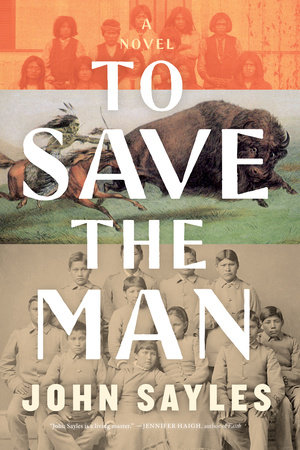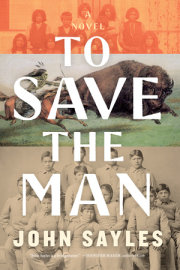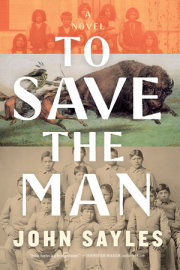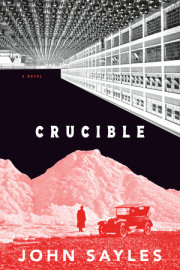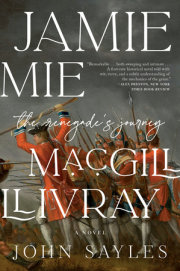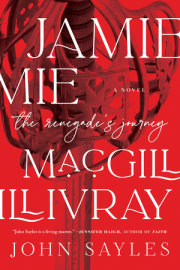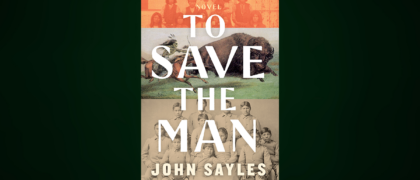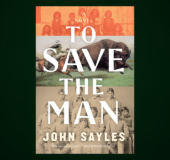Muskrat, if you do a decent job with the skinning, scraping, and tanning, will bring you fifteen cents a hide at the mercantile over in La Pointe. Catching them is the easy part.
Antoine sees his father standing on the shore, hands cupped around his mouth to call out.
“How’d we do?”
Antoine lets the canoe drift, grabs one by its excuse for a neck to hold it up.
“Got five in the traps!”
They carry the canoe from the water, carefully turning it over to rest on an old stump, and lug the chunky rodents by their tails, the footpath through the red pines just wide enough for two.
Antoine’s father works something over in his mind before he speaks.
“I talked to the government fella about this Dawes Act.”
“Where they take our land.”
Antoine has heard some about it from Père Etienne and some more from the Indian agent himself, a man everybody calls the Swamp because of his foul breath.
“They take it from the
tribe. And then they give some back to the head of each household. Call it an ‘allotment.’”
“How much?”
“A hundred sixty acres.”
Antoine, always good at numbers, tries to imagine this, but can only see the clearing where their cabin is, see the fishing hole and the bank where they put in to harvest rice. All on what he thinks of as their land. “Do we use that much?”
His father looks away. “How it goes,” he says, “is from father to son. Least that’s what the Swamp tells me—”
“Yeah—?“
“So if your father was French like mine was, you’re not considered part of the tribe unless a man who
is has adopted you in.”
“So?”
“Nobody ever done that for me, not on a piece of paper.”
“But you always lived with—”
“They say it don’t matter how you
live, it’s what’s on paper. They got people coming up all the way from Milwaukee, look like goddam squarehead Swedes, with papers saying they’re Ojibwe and they should be on the roll.”
“That isn’t fair.”
“That don’t matter either.”
The muskrats are feeling heavy now, and Antoine shifts the biggest from one hand to the other.
“It don’t matter that your maman
goes straight back to old Chief Buffalo—the government says Jacques LaMere don’t qualify for no allotment.”
They walk a moment in silence. Antoine’s father seems more embarrassed than angry when he speaks again.
“But then I was talking to Père Etienne and Sister Ursula, and they say how if you got one of your children at this Indin school back East, it means that according to this Senator Dawes
you’re an Indin.”
Antoine stops in his tracks, looks at his father.
“I don’t want to go to school in the East. Send Pascal or René.”
“You’re the one I can spare the most. You’re the one who’s good at school, the one who reads English good and who knows what to say to those people.”
Antoine hears a woodpecker hammering, high in a tree up ahead. He waits until his father will look him straight in the eye again and speaks forcefully in Ojibwe.
Does my mother know about this?
At the cabin Antoine’s father stays outside, unhappily yanking muskrat hides off their bodies.
Antoine’s mother watches a lump of lard melt down in a hot skillet, speaking to him in Ojibwe.
There are too many white people to shoot them all.
It is the closest she comes to cursing, in any language. Antoine stands behind her, awaiting the verdict.
I’ve been to enough school, he says.
Père Etienne says it’s the only way.
I thought you never listen to priests.
Antoine’s mother dips her fingers in a bowl of water, flicks droplets into the skillet, where they pop in the spreading grease.
Because they lie. The earth—our earth—is the white man’s paradise, and money is his only god.
She deftly places small balls of dough from a floured board into the skillet, sizzling as they begin to fry.
I haven’t done anything to make you punish me like this, says Antoine.
If we were in a flood, would you bring a boat to pull us from the water?
Yes—
If a bear attacked the little ones, would you try to kill it?
Yes, but—
This is what you can do to save us now.
Tears form in his mother’s eyes as she stares at the frying lumps of bread, then she turns and puts her arms around him.
Don’t ever forget who you are.
You’d think the white people had never seen an Indian sit in a passenger train before. But Antoine has the ticket stub in his pocket and his Sunday church clothes on and deals it right back to them, stare for stare, even when he opens the window and learns about the cinders and smoke flying in and they all shake their heads and harumph. Hank Downwind was off to Red Cliff with his wagon so Antoine’s father had the Indian agent send a wire for the train to stop at the water tank on the rail that runs through Lester Cadotte’s old patch, only a couple hours’ walk through the woods from their cabin. His father didn’t talk much on the way.
“We do good with the rice this year,” he said, “maybe we can send you money to ride home for a visit.”
It is the rice harvest he’ll miss the most, the job he took over when Pascal and then René got on at the sawmill, poling the canoe through the high stalks while his mother taps ripe grain off the heads with wooden knockers. There is a rhythm to it that he loves,
chock-chock, chock-chock, like there is a rhythm to this train as it rolls over the joins in the rails.
At first it is only thick woods to be seen out the window, now and again pointed stumps and a beaver pond, then some open spaces and a few unpainted shacks. Though there’s no reason to be tired, the side shimmy of the car and
kathunk-kathunk-kathunk of the wheels below lull him to sleep for a spell, till there is the whistle blasting from ahead and the man in the blue uniform shouting.
“Five-minute stop, folks! Stretch your legs.”
The train slows, passing a pyramid of dark-stained railroad ties, then stops, hissing in a cloud of steam at a platform with no station house on it.
Antoine stays glued to his seat, not wanting to chance being left behind, while a good number of the white passengers get up and move to look out the windows on his side of the aisle. A bony, stern-looking white man stands on the platform, towering over perhaps a dozen Indian boys and girls, most of them younger than Antoine. They are dressed in dusty buckskins and scraps of cast-off cotton clothes, most with blankets draped over their shoulders, looking like they’re about to be hanged. Antoine turns to stare like the other passengers do, but declines to point or mutter as the children are marched into the car by the white scarecrow man and deposited into empty seats.
The oldest of the boys is pushed down next to Antoine.
“You try and run again, Imonna have to
tie you to this seat.”
When the scarecrow moves to the back of the car to keep an eye out, Antoine asks the boy in Ojibwe who they are and where they come from. The boy acts as if he doesn’t hear.
The man in the uniform calls out again and some bags are hurried aboard, then the whistle is pulled and the train jolts back into motion. There are telegraph poles alongside the track here, evenly spaced, and Antoine thinks that putting them up would not be such a bad job, pacing off the distance, digging a hole, setting a pole in, pacing off the distance . . .
White people at the front of the car lean out into the aisle to look back at the newcomers. The boy next to Antoine pulls his dusty blanket up to hide his face.
It is past noon when Antoine realizes what the scarecrow is up to when he escorts each of the Indian children to a door at the back of the car, waits for a bit while they are on the other side of it, then takes them back to their seat. All but the boy next to Antoine. Some of the white men in the car go back there, and finally Antoine gets up the nerve. It is a small closet, smaller than the one at the mission school, and he can see railroad ties flashing underneath through the hole in the box you sit on.
So whatever you do is left behind on the tracks.
When he is finished Antoine goes back and takes the arm of the boy at his seat, motions for him to come along. The boy resists, but Antoine smiles and nods with his head and finally the boy agrees to come along. Antoine takes him back to the closet, the scarecrow watching them suspiciously, and shows the hole in the box and makes signs with his hands before leaving the boy inside and shutting the door. The boy stays inside for a good while, Antoine wondering if the he might be thin enough to fit through the narrow hole and drop under the train.
Which would surely kill you.
When he finally comes out they go back up the aisle, the boy grabbing the backs of seats to keep his balance. He waits for Antoine to sit by the window, then slides in and covers his head with his blanket again.
They change trains once, the scarecrow motioning to Antoine to come with his group, and then it is night and they are all given a square of dry cornbread from a basket. Antoine sleeps again, waking whenever they stop at stations with lights and noise and black men in uniforms on the platform, pushing carts piled with bags and trunks.
“Just stay put,” says the white scarecrow man, standing in the aisle and holding his hands up. “We got a ways to go yet.”
One of the little girls is crying most of the night, but nobody comforts her or tells her to be quiet.
At the speed that they roll and the time it is taking, thinks Antoine, he is already impossibly far from home. Sister Bernadette, who is in charge of teaching numbers at the mission school, is fond of posing travel conundrums. If the train makes forty miles every hour, and runs for six hours only stopping to take on fuel and water for thirty minutes, how far is it to Bemidji? Antoine was adept at these once he discovered the trick of how the changeables—time, distance, speed—related to each other, and there is always a trick of some sort, like what his father says about signing the white man’s paper.
“You think you smell dinner,” he’ll say, “and then them iron jaws snap shut on your leg.”
Antoine’s father is very clear that he is not half white, he is half
French, considering that a tribe like the Ojibwe or the Potawatomi.
“The things they
done to our people,” he complains, and you can’t tell if he means the local whites scheming to steal their land or the ones he calls
les mauvais anglais up across the border.
It is dark and quiet, except for the crying girl, for a long time, then the sky lightens to a grayish rose color. More and more stations now, more and more white people, new ones, more people in and out of this one train car than Antoine has ever met in his life. At one of the last stations a young Indian woman dressed in white comes aboard, slight and frail-looking with a beautiful, sad-eyed face. She stops in the aisle to speak in an almost-familiar tongue to some of the blanket children. When she comes near Antoine he gathers his nerve to call to her.
“Do you know them?”
“No,” she says. “But I know who they are.”
“We’re going to the Indian school.” It shakes him a little, that “we
.”
Even when she smiles she looks unhappy. “As am I.”
“They take us as old as you?” he asks, and immediately regrets it. She might not yet be twenty.
“I’ll be teaching there.”
“Sorry—”
“At the school I’ll be Miss Redbird.”
The boy sitting next to him is staring at her, and she says something in his language. He replies angrily and she touches his shoulder with her hand, speaking softly. The boy does not seem comforted. The young woman turns back to Antoine.
“Try to look out for him,” says Miss Redbird before walking back to sit next to the white scarecrow man. “If you can.”
Copyright © 2025 by John Sayles. All rights reserved. No part of this excerpt may be reproduced or reprinted without permission in writing from the publisher.

